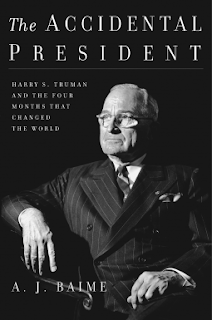 I began reading about the First Ladies while designing my quilt Remember the Ladies. I have read many biographies and general books on these amazing women.
I began reading about the First Ladies while designing my quilt Remember the Ladies. I have read many biographies and general books on these amazing women.The wives of our presidents are not elected. They have no job description. Some come to the White House unwillingly, although some did push their spouse into office. They face the deepest public scrutiny and share with their husbands both fame and criticism.
The first First Ladies had the hardest (unpaid) job: everything about the office of the presidency had to be invented. And a lot of it fell on the ladies, for they handled the social networking. If the president and his lady appeared to ape European courtly traditions they were accused of being monarchists and anti-Democratic. But we could not appear to be backwoods rubes to the foreign ambassadors, either.
First Ladies of the Republic: Martha Washington, Abigail Adams, Dolley Madison, and the Creation of an Iconic American Role by Jeanne E. Abrams shows how these women responded to the challenge of creating a Democratic social style for the presidency.
Martha and George Washington were revered figures when George became the first president. Don't think they were exempt from criticism! The political in-fighting and party politics started up right away. Like many presidential couples, the Washington's personalities balanced each other. George could be stiff, but Martha was beloved by everyone, America's sweetheart-- "the mother of our country."
As the wife of the first Vice President, Abigail Adams became very close to Martha. When John Adams became president, Abigail followed Martha's pared-down, understated formality. Abigail was a very different personality, of the highest intelligence and not afraid to speak her mind. She was an important sounding board for John. Frail health plagued her and when her health required her to retire to the Adam's home in Quincy, John sorely missed her counsel.
Thomas Jefferson's wife had tragically died during the war after she fled from their plantation shortly after giving birth. His daughter Patsy sometimes played hostess. Sometimes his Secretary of State's wife Dolley Madison stepped in. Jefferson downplayed his elegant and sophisticated taste with a forceful display of anti-elitism, welcoming guests in bedroom slippers.
With the intellectual James Madison's election, his younger wife Dolley Madison took the capital by storm. A brilliant extrovert with a high social IQ, she notched the style up a few ratchets. Her 'squeezes' included all of Washington, bringing together political enemies, men and women. Dolley had high style, refined and dignified but with real bling. Well, she wore pearls instead of diamonds, so we give her that. When Dolley died her funeral rivaled that of George Washington's!
Each woman advanced the role of First Lady, politically for their influence on the president and their ability to tweak the granting of political office, and by promoting causes. All three valued the traditional role of women but also understood that it was women who determined social manners.
This book is a nice introduction to these ladies and their influence.
I received a free ebook from the publisher through NetGalley in exchange for a fair and unbiased review.
First Ladies of the Republic: Martha Washington, Abigail Adams, Dolley Madison, and the Creation of an Iconic American Role
by Jeanne E. Abrams
NYU Press
Pub Date: 06 Mar 2018
ISBN: 9781479886531
Hardcover $28.95
 |
| Remember the Ladies: The President's Wives in Redwork by Nancy A. Bekofske |
 |
| Remember the Ladies from Quilts Presidential and Patriotic by Susan Reich |








